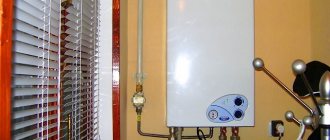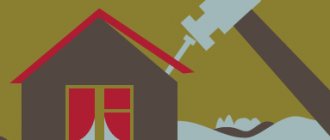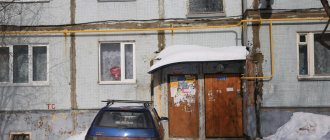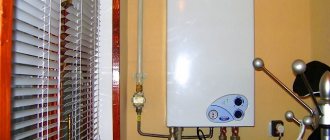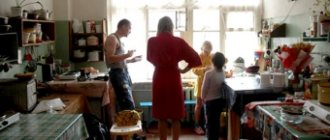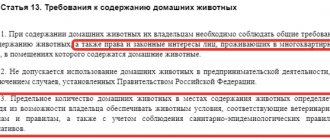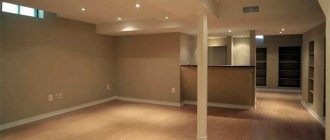Legislative regulation
The rules of living in modern apartment buildings are regulated by federal and regional legislation. They are stated in the following documents:
- Constitution of the Russian Federation (Article 40).
- Civil Code (Article 290).
- Housing Code.
- PP indicating “Rules for the use of residential premises” No. 491.
- Code of Administrative Offences.
The issues of living in apartment buildings are reflected more deeply in regulations created at the municipal level. For example, HOAs and other management companies regulate the following areas:
- Sanitary and fire safety standards.
- The procedure for paying utility bills for the use of common property.
- Time to carry out major repairs and other repair work. Carrying out redevelopment of apartments.
- Rules for using parking spaces near the house.
- Keeping and walking animals.
- Maintaining cleanliness of the area and common areas.
- Actions in emergency situations.
- Responsibility for violating the rules of residence.
Such norms, which are internal and developed by municipal authorities, have legal force at the same level as state ones. They are compiled individually for each home.
Moreover, each resident has the right to propose his own changes and adjustments . The management company is obliged to notify other residents about this. Most often, a general meeting is organized at which voting is held and a decision is made to approve or reject proposals.
If the requirements have been satisfied, they are documented and signed. After this, the changes become an internal document of the house and are mandatory for all residents.
Internal rules of residence cannot contradict the current legislation of the Russian Federation and are drawn up on its basis.
Violation of the rules of residence
Many residents forget not only about the norms provided for by law, but also about the basic rules of decency and culture. As a result of the boorish attitude of some people, other citizens suffer inconvenience. We can cite many such situations as examples. This includes immoral behavior in the apartment, systematic holding of noisy parties with drinking alcohol, and carrying out repair work late in the day or on weekends, and damage to common property (elevators, entrances, etc.). The most common cause of conflict is noise coming from neighbors.
Noise from neighbors
The permissible noise level is established by Federal Law No. 52 “On the sanitary and epidemiological welfare of the population.” In accordance with the Federal Law, noise can be made from 7 a.m. to 11 p.m., but within a level of 40 dB, and from 11 p.m. to 7 a.m. this figure should not exceed 30 dB. For many, numbers of 30-40 dB mean nothing. To understand in more detail how noisy it is, let’s take a car alarm as an example: its noise level is 80 dB.
In different regions of the Russian Federation, local authorities adopt their own laws on silence. Therefore, the time period during which you can “make noise” may differ.
Where to go if there is a violation?
If you are disturbed by noisy neighbors, then you can influence them. The fact is that administrative sanctions are provided for violating the silence regime. So, according to Art. 6.3. The Code of Administrative Offenses of the Russian Federation applies a warning or a fine in the amount of 100 to 500 rubles for citizens.
To bring violators to justice, you must file a complaint with the local police . For the first time, I can issue a warning to violators. But if the acts are repeated, then most likely a fine will be imposed.
It should be understood that paying a fine does not mean that in the future the person will not be charged again for this violation.
In order not to be unfounded, a person whose rights have been violated must not only write a complaint against the violating neighbor to the police, but also provide evidence of his illegal actions. In reality it may not be so simple. Therefore, it is better if the district police officer personally verifies that a violation has been committed. If a situation arises where neighbors are not giving peace, it is necessary to call a police representative and record the violation on the spot.
If there is an administrative offense, a protocol is drawn up, on the basis of which a fine is issued. The violator has the right to appeal it in court.
Standards of residence in MKD
Noise in the apartment
In SanPiN 2.1.2.2645-10 and art. 23 Federal Law No. 52 prescribes sanitary standards regulating noise levels in residential premises and preserving the rights of citizens to sleep and rest. So, in the daytime, namely from 7:00 to 23:00, the noise level cannot exceed 45 dB. From 23:00 to 7:00 this figure decreases to 30 dB.
Types of noise prohibited in residential premises at night:
- construction and repair work, moving furniture;
- screaming, swearing, noisy parties;
- playing musical instruments, listening to music or watching movies at high volume;
- use of firecrackers, rockets and fireworks;
- Repeated activation of the car alarm.
Repair work must be coordinated with the management company and carried out at the time established by the rules - from 9 a.m. to 7 p.m. A period is provided for daytime rest, when noisy work must be suspended and replaced with others.
Many regions have extensive regulations governing construction and renovation work. For example, in the Moscow region, daytime rest falls between 13:00 and 15:00. In some regions, the frames have been changed from noon to three o'clock in the afternoon.
It is worth understanding that the law on silence applies not only to residential premises, but also to the local area and common areas. Establishments (cafes, nightclubs, hotels, shops) located near residential buildings are required to respect the rights of resident citizens.
On weekends and holidays, the rest schedule is shifted by 2 hours and starts not at 23:00, but at 21:00 and continues until 9:00. From 2021, residents are allowed noisy festivities on January 1 throughout the day. This rule does not apply to other holidays.
Special attention is paid to such types of noise as the crying of a child. If a child’s crying is heard regularly and for a long time, residents have the right to contact the guardianship authorities to check whether the minor is being properly supervised.
Smoking
Law No. 15 “On the Protection of Citizens’ Health...” provides for a ban on smoking in public places. According to paragraph 1 of Article 12, the use of tobacco products in an apartment building is unacceptable:
- in the entrances;
- on staircases and playgrounds;
- in elevators, basements, attics;
- on the shared balcony;
- in the premises and offices of the HOA.
Smoking is allowed only in apartments and rooms, as well as in specially equipped places on the premises. Smoking may be prohibited on personal balconies if the smoker's neighbors contact the housing inspectorate and can prove that tobacco smoke penetrates into their living quarters.
In corridor-type dormitories, kitchens, showers and toilets are considered common areas and are subject to a smoking ban.
Animal keeping
Pets cannot live in stairwells, attics and basements. Since 2021, some provisions of the Federal Law “On the Responsible Treatment of Animals” have come into force, which prohibit keeping wild animals in an apartment. These include:
- some types of snakes;
- crocodiles;
- lions;
- tigers and other wild cats;
- the Bears;
- wolves and many others.
Dogs on the premises must be walked exclusively in muzzles and all responsibility for the behavior of the four-legged friend is shifted to its owner. Walking animals is allowed in specially equipped places and is strictly prohibited on children's playgrounds.
If residents of an apartment building are uncomfortable because of loud barking from a dog or other noise, they have the right to contact the owner of the animal to find ways to solve the problem. Also, in case of violation of the established Rules, each citizen can send a statement to the local police officer with a request to investigate and punish the culprit.
Maintenance of common and adjacent property
According to paragraph 2 of Resolution No. 491, common use property includes:
- Stairs and landings.
- Elevator and its shaft.
- Corridors and utility rooms.
- Attics and roof, load-bearing structures.
- Premises for social and domestic needs.
- Land adjacent to the house.
In paragraph 4 of Art. 30 of the Housing Code states that apartment owners must comply not only with the rules of living in an apartment building, but also with the rules for the use and maintenance of common property.
Residents are required to maintain the safety and order of common property.
- Damage to walls and railings, doors and windows is prohibited.
- The elevator must be operated in accordance with established rules - it must not be loaded with large items in the form of furniture or building materials.
- The entrance door should always be closed, as should the rooms providing access to the roof, boiler rooms and boiler rooms.
- It is forbidden to obstruct landings, passages and emergency exits with any property, as this is contrary to fire safety rules.
- It is prohibited to litter the area adjacent to the house with garbage and various wastes.
- Traffic and parking rules inside the yard must be observed; trucks cannot be parked.
- Unauthorized installation of garages, fences, cutting down trees and green spaces is excluded.
Use of residential premises for other purposes
Residential premises can be used for professional or individual entrepreneurial activities, if this does not lead to a violation of the rights of other residents and does not affect the requirements that residential premises must meet.
The location of industrial production, hotels, and shelters is prohibited (with the exception of cases prescribed in Article 16 of the Federal Law “On Freedom of Conscience and Religious Associations”).
Emergency situations
Any tenant who encounters a malfunction of communication systems (gas, electrical or sanitary) is obliged to report it to neighbors (if the breakdown extends to their apartments) and the management company. She, in turn, must promptly respond to the request to fix the breakdown and eliminate its consequences.
Additional documents governing such situations:
- Resolution No. 354 of May 6, 2011.
- RF PP dated 06/09/2007 No. 360 “On approval of the Rules for concluding and executing public agreements on connection to utility infrastructure systems.”
- Civil Code of the Russian Federation.
Safety standards
Residents and the management company are required to comply with standards aimed at ensuring the proper level of safety.
Forbidden:
- Provide open access for outsiders to pass through.
- Hush up problems or continue to operate faulty communication systems.
- Violate fire safety rules.
If the owner of an apartment leaves his home for a period exceeding 10 days, he is obliged to notify the management company and neighbors of his departure. It is necessary to turn off the gas and water supply and leave your telephone number so that you can contact in case of problems.
Housing code on rules of residence
The Housing Code is the main document regulating legal relations in the field of housing rights of citizens. If we analyze the Housing Code of the Russian Federation, we can draw a conclusion about what rules residents must follow. Thus, Article 30 of the Housing Code is devoted to the rights of owners of residential premises.
In particular, owners have the right to own and use housing in accordance with its intended purpose. The owner is responsible for maintaining the housing (payment of housing and communal services, mandatory payments). The owner is obliged to keep the premises clean and not allow it to be mishandled.
Have a question or need legal help? Take advantage of a free consultation:
Free legal advice by phone:
8 (Moscow and Moscow Region) 8 (St. Petersburg and Leningrad Region) 8 (Regions of the Russian Federation)
Members of his family may live with the owner and have the same rights as the owner regarding residence . While living in an apartment, the owner and his family must not violate the rights of other citizens - neighbors.
